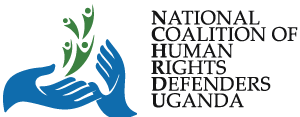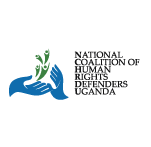General FAQs
A human rights defender is a person who, individually or with others, acts to promote or protect human rights using peaceful means. It is their actions and how they manifest them that define them. Previously, they were called activists, professionals, workers or monitors. The term “human rights defenders” was later seen as a more relevant and useful term.
- They address any human right (or rights) violation and abuses on behalf of individuals victims or groups.
- They promote and protect Human Rights and seek their realization through creating awareness, education and reporting violations or abuses to relevant authorities.
- They support victims of violations and abuses through giving them shelter, representing them in courts of law.
- They support better governance and government policy by encouraging and influencing the government the Government as a whole to fulfill its Human Rights obligations through advocacy and lobbying with the relevant state institutions.
- They contribute to the implementation of International Human Rights Treaties, Bills and national legislation (Acts of Parliament).
- They conduct Human Rights education and training sessions to both state and state actors.
All human rights within Chapter Four of the Constitution of RoU 1995 as amended-The Bill of Rights such as:
- Right to participate
- Freedom of Association
- Freedom of expression and opinion
- Access to information
- The right to vote
- Mistreatment, Torture, inhuman and degrading treatment
- Arbitrary arrest and detention
- Corruption and bribery
- Discrimination
- Employment and ethnic issues
- Land issues like forced evictions, prior adequate compensation.
- Access to health care and the right to health
- Environment issues like toxic waste and its impact on the environment.
However, this list is not limited to only the above.
- Right to life
- Right to a clean and health environment
- Freedom from torture degrading and inhumane treatment or punishment
- Right to food and clean water
- Right to the highest attainable standard of health
- Right to adequate housing;
- Right to a name and a nationality
- Right to education;
- Rights of women
- Rights of children
- Rights of elderly people
- Rights of persons with disability
- Freedom of movement, expression and association
- Rights of indigenous persons and ethnic minorities.
- Rights of refugees and internally displaced persons
- Rights of national, linguistic or sexual minorities
Progressively generate synergistic total linkage through cross-media intellectual capital. Enthusiastically parallel task team building e-tailers without standards compliant initiatives.
- Through a description of their actions done in a nonviolent or peaceful means.
- Through peace dialogues and constructive engagements with state and no state actors.
- Through creative music dance and drama
- Through monitoring, documenting and reporting.
- Through investigations
You do not necessarily require academic qualifications as long as you are able to know and explain the fundamental rights/freedoms and responsibilities required of you and others.
- They often face risks such as intimidation, threats, harassment, detention and violence, both from state and non-state actors, while undertaking their work.
- They may also encounter legal obstacles, restrictions on their activities, social stigmatization and financial restrictions.
- You can support human rights defenders by raising awareness of their work, sharing their stories, and advocating for their protection.
- Donating to organizations that support human rights and advocating for stronger legal protections at all times.
The National Coalition of Human Rights Defenders Uganda (NCHRD-U) is a registered membership organization that was formed in June 2013 with aim of promoting the Protecting and coordination of HRDs in Uganda. It is a membership organization comprising of over 200 registered organizations and individuals nationally
Its mission is to promote and protect the work of HRDs is a safe and secure environment through linkages with National, Regional and International likeminded entities.
NCHRD_U’s vision is a “A society that upholds the dignity and Rights of every Human Rights Defender”.
The specific objectives include;
- To create an avenue for collective response to threats against HRDs.
- To coordinate other Civil Society organizations in promoting safety and security of HRDs.
- To improve protection mechanisms, safety and security of HRDs at individual and organizational level.
- To advocate and raise public awareness and profiles of HRDs in the country
- You will be able to learn more about the work of HRDs
- You will be entitled to attend capacity building session on different thematic areas
- You will be able to attend the AGMs and other educative engagements or meetings
- You will be able to vote at the AGMs which is the highest decision-making body.
- You will be guaranteed protection –security in numbers.
- It is a Sharing, exposure and learning platform.
- You will be entitled to some emergency support to a human rights defender when at risk.
- It helps in profiling HRDs and the work they do.
- It helps in Joint Advocacy for better policies and laws including Networking
- It is platform for solidarity among HRDs and other partners.
- It highlights and shares experiences on the nature of threats faced by HRDs
- It focuses and reignites the debate on the need for organizational and personal safety and security for HRDs Uganda.
An organization or individual whose actions or activities contribute to the protection and promotion of human rights in a nonviolent manner. The person must be fully subscribed to the Coalition irrespective of sex, religion, tribe or any other creed.
Step 1; Expression of interest by application and fulfillment of the requirements
Step 2; Filling in NCHRD-U membership form and attach;
- Certified Certificate of registration and issued by the NGO Bureau
- Certified copy of Certificate of Registration and incorporation issued by NGO Board
- Profile of program or activities being undertaken
- Brochure
- Sketch map and location of organization
- Organizational organogram
- Sign up and live to the Code of Conduct (CoC)
Step 3; After an Assessment of the fully filled membership form, it’s then carried out and a communication shall be made of approval or otherwise.
Annual membership subscription fee of 100,000UGX for individual HRDs and 200,000 UGX for organizations to be paid to the Secretariat and receipt issued.

